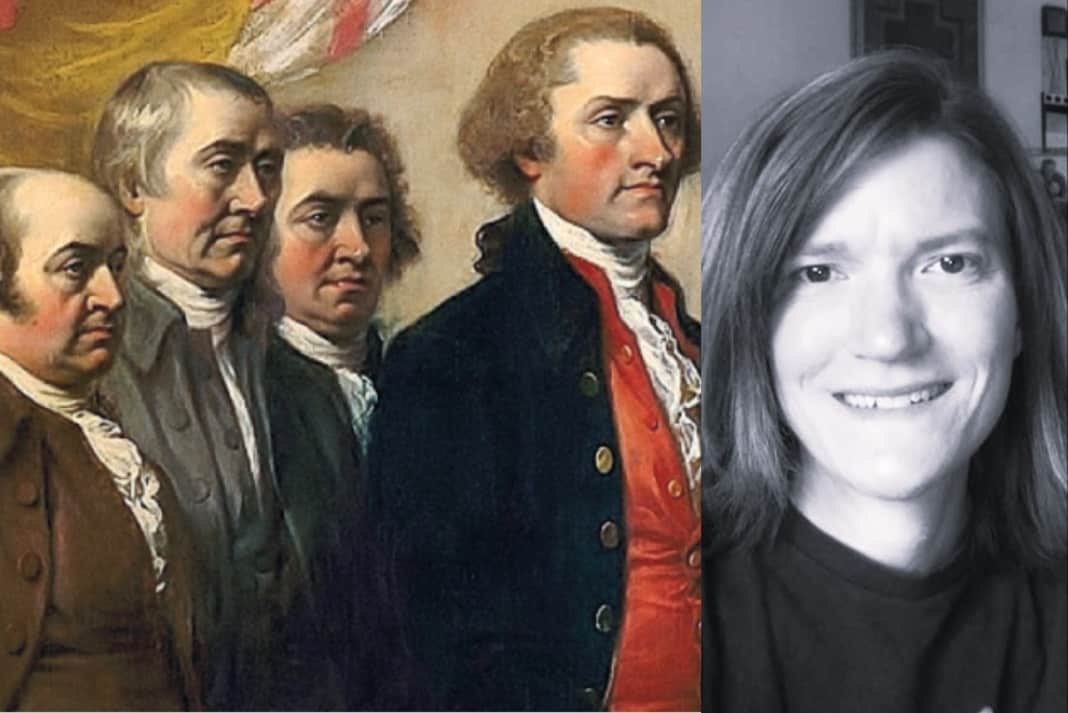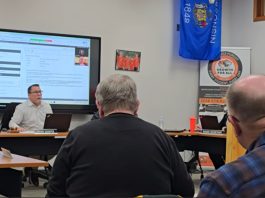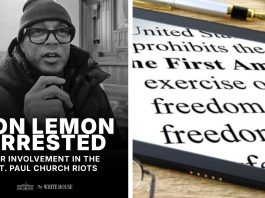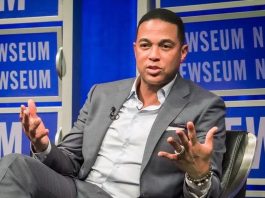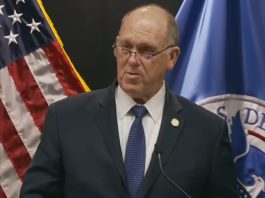“‘I’d rather get 80 percent of what I want than go over the cliff with my flags flying,’” Ronald Reagan’s Chief of Staff, James Baker, recalled Reagan saying to him on numerous occasions. There is so much wisdom in that statement. That sentiment is desperately needed in the times we’re living in.
America is dangerously hanging by a thread. Wisconsin is in danger of becoming like Minnesota or California because of a politically driven WI Supreme Court. And Democrats are using the new liberal majority court as if it were the Legislature until they get the highly partisan legislative maps they want, among other things.
I can’t help but wonder if the Iowa-style maps would have been a compromise worth trying given the current predicament we find ourselves in.
There’s a time to hold the line (securing the border comes to mind) and a time to be pragmatic and politically savvy when dealing with Democrats who are willing to do whatever it takes to gain or retain power.
I would encourage us to learn from our founding fathers. We sometimes forget how divided and fragile things were in America at that time, even after the Revolutionary War was won. Our founding fathers had sharp disagreements at times and vigorously debated what our Constitution should look like.
How much power should the states have? How much authority would the federal government have? Alexander Hamilton and Thomas Jefferson disagreed on this. Among the founders were firebrands like Patrick Henry, and statesmen like George Washington—both had their roles to play.
In a speech to the Constitutional Convention in September of 1787, Benjamin Franklin expressed his thoughts on the document that would become our Constitution. It was near perfect, but not every word of the finished document would be totally agreed upon by everyone.
In a call for unity, Franklin admitted that even he had doubts about his own opinions at times, “I confess that there are several parts of this Constitution which I do not at present approve, but I am not sure I shall never approve them: For having lived long, I have experienced many instances of being obliged by better information, or fuller consideration, to change opinions even on important subjects, which I once thought right, but found to be otherwise. It is therefore that the older I grow, the more apt I am to doubt my own judgment, and to pay more respect to the judgment of others.”
What a mature perspective. This is the type of humility needed from each of us to successfully overcome our differences. Unity isn’t what some people think it means. It doesn’t mean always agreeing or avoiding conflict. It means working through our differences in a constructive way because we’re on the same team. =It means looking for common ground instead of constantly looking for a fight. It means not demanding our own way 100% of the time and being willing to listen to others with an open mind.
As a county party chair and vice chair of my district, I have to deal with conflicts and disagreements often. I don’t shut people down or vilify those who disagree with me. Creating an environment where people are allowed to express their opinions without being vilified is how we get the best ideas and how we remain united on our side. I’m not afraid to be bold or blunt if necessary, but I don’t have to be inflammatory or overly divisive in my rhetoric to get my point across.
I understand we have high standards and want results. But there is a delicate balance between demanding accountability and accepting imperfection in less-than-ideal circumstances. Our founding fathers understood the need to put differences aside in the end when they ratified our constitution.
In his speech to the Constitutional Convention, Benjamin Franklin continued, “For when you assemble a number of men to have the advantage of their joint wisdom, you inevitably assemble with those men, all their prejudices, their passions, their errors of opinion, their local interests, and their selfish views. From such an assembly can a perfect production be expected?”
We must understand there will never be a perfect product when a group of people with their own opinions and imperfections are debating various issues. Even when we use the Constitution as our guide, there will still be disagreements on the best way to handle things.
Franklin continued, “And I think it will astonish our enemies, who are waiting with confidence to hear that our councils are confounded like those of the Builders of Babel; and that our States are on the point of separation, only to meet hereafter for the purpose of cutting one another’s throats. Thus, I consent, Sir, to this Constitution because I expect no better, and because I am not sure, that it is not the best.
The opinions I have had of its errors, I sacrifice to the public good. I have never whispered a syllable of them abroad. Within these walls they were born, and here they shall die. If every one of us in returning to our Constituents were to report the objections he has had to it, and endeavor to gain partizans in support of them, we might prevent its being generally received, and thereby lose all the salutary effects & great advantages resulting naturally in our favor among foreign Nations as well as among ourselves, from our real or apparent unanimity.”
Franklin understood the importance of unity, or at least the appearance of unity, even if behind closed doors passions ran high. He also understood there would rarely be total agreement. America’s enemies want nothing more than for us to be divided during such a fragile time in our nation. We need to handle disagreements in a way that isn’t destructive to our cause.
The 2024 election is upon us, and this year is going to be challenging. It’s time for us to unify around our common values and fight together, not against each other. We have far more in common than not. The left is constantly undermining America’s foundational principles and our Constitution. That’s what we should be focused on most, not the 20% we may disagree on.
Think about Ben Franklin’s words at the constitutional convention. Remember Ronald Reagan’s words of wisdom—let’s not go over a cliff flying our own flags in some vain attempt to make a point. Let’s work together on the 80% we agree on and win in 2024 so we can save America. Our republic and future generations are depending on us.
